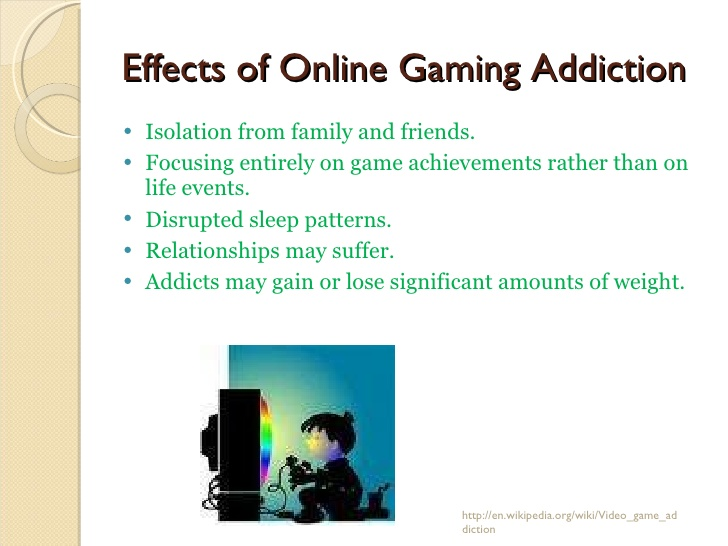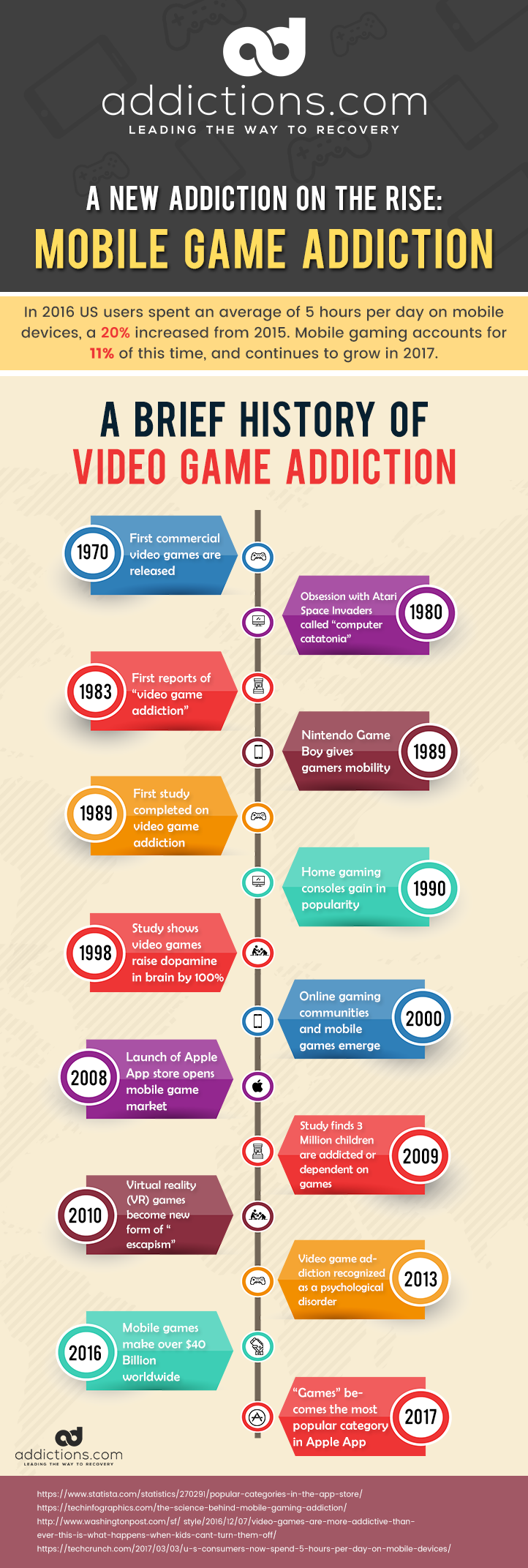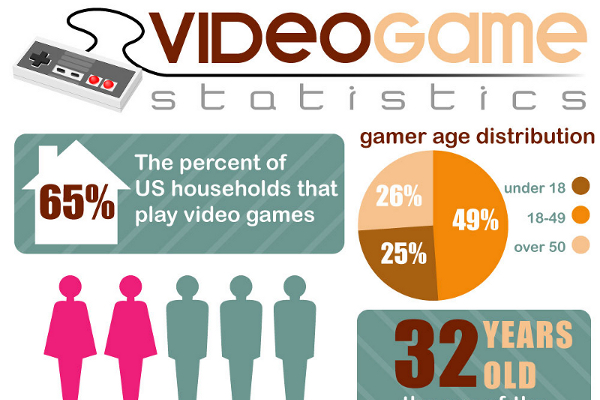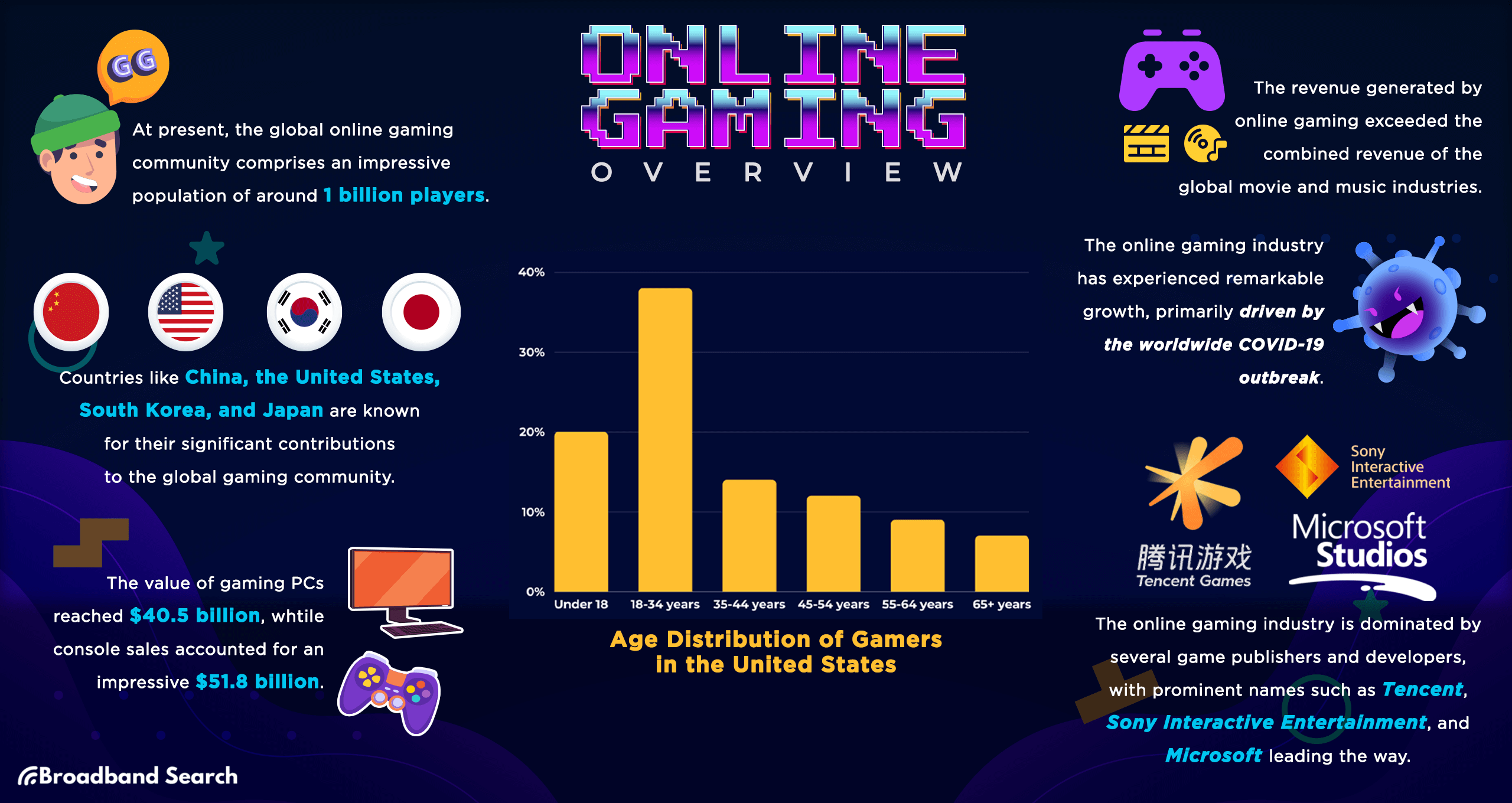The Evolving Landscape of Online Gaming Addiction: A 2025 Perspective
Related Articles: The Evolving Landscape of Online Gaming Addiction: A 2025 Perspective
Introduction
With great pleasure, we will explore the intriguing topic related to The Evolving Landscape of Online Gaming Addiction: A 2025 Perspective. Let’s weave interesting information and offer fresh perspectives to the readers.
Table of Content
The Evolving Landscape of Online Gaming Addiction: A 2025 Perspective

The year 2025 presents a complex landscape regarding online gaming and its potential for addiction. While the digital world has opened doors to unprecedented forms of entertainment and connection, the allure of virtual worlds can also lead to detrimental consequences. This article aims to provide a comprehensive overview of the effects of excessive online gaming, examining the evolving trends and challenges that lie ahead.
The Shifting Landscape of Online Gaming
The online gaming industry continues to evolve at a rapid pace. Advancements in technology, immersive virtual reality experiences, and the rise of esports have contributed to a more engaging and accessible gaming environment. This has, in turn, increased the potential for excessive gaming and its associated negative impacts.
Understanding the Mechanisms of Addiction
Online gaming addiction, like other forms of addiction, involves a complex interplay of psychological, social, and biological factors. The rewarding nature of games, coupled with their readily accessible and customizable environments, can create a powerful loop of engagement.
- Dopamine Release: Games often trigger the release of dopamine, a neurotransmitter associated with pleasure and reward. This reinforces the desire to continue playing, creating a sense of urgency and compulsion.
- Social Validation: Online gaming communities provide a sense of belonging and validation, particularly for individuals who may struggle with social interaction in real life. This social aspect can further fuel the desire to remain connected and active within the virtual world.
- Escape from Reality: For some individuals, online gaming serves as a form of escapism from real-life stressors and challenges. This can lead to a reliance on the virtual world as a coping mechanism, neglecting responsibilities and relationships in the real world.
Impact on Individuals and Society
Excessive online gaming can have a significant impact on individuals and society as a whole. The consequences can range from personal distress to broader social and economic concerns.
Individual Impacts:
- Mental Health: Excessive gaming can lead to anxiety, depression, and sleep disturbances. The constant stimulation and potential for failure can contribute to feelings of inadequacy and isolation.
- Physical Health: Prolonged gaming sessions can result in physical health problems such as eye strain, repetitive strain injuries, and obesity due to sedentary behavior.
- Academic Performance: Gaming addiction can significantly impact academic performance, leading to decreased concentration, poor grades, and potential academic suspension.
- Social Relationships: Excessive gaming can lead to social isolation and neglect of real-life relationships. Individuals may prioritize virtual interactions over real-world connections, leading to strained relationships with family and friends.
- Financial Strain: Online gaming can be financially demanding, particularly with the rise of in-game purchases and microtransactions. Individuals may find themselves spending excessive amounts of money on games and related items, leading to financial hardship.
Societal Impacts:
- Cyberbullying and Harassment: Online gaming environments can be susceptible to cyberbullying and harassment, impacting the mental well-being of players and creating a toxic online community.
- Economic Impact: The rise of online gaming addiction can lead to economic losses due to reduced productivity in the workforce and increased healthcare costs associated with related mental and physical health issues.
- Social Disconnection: The increasing prevalence of online gaming addiction can contribute to a decline in social interaction and community engagement, leading to a more isolated and fragmented society.
Preventing and Addressing Online Gaming Addiction
Addressing online gaming addiction requires a multifaceted approach that involves individual, family, and societal efforts.
Individual Strategies:
- Self-Awareness and Moderation: Individuals should be aware of their gaming habits and set realistic limits on their gaming time. This involves prioritizing real-life activities and responsibilities over gaming.
- Seeking Professional Help: If individuals struggle to manage their gaming habits on their own, seeking professional help from a therapist or counselor specializing in addiction can be beneficial.
- Developing Healthy Coping Mechanisms: Individuals should develop healthy coping mechanisms for dealing with stress and anxiety that do not involve excessive gaming. This might include exercise, meditation, or spending time with loved ones.
Family and Community Support:
- Open Communication: Open and honest communication between parents, family members, and individuals struggling with gaming addiction is crucial for fostering support and understanding.
- Setting Boundaries: Families should establish clear boundaries regarding gaming time and access to devices. This can help prevent excessive gaming and encourage healthier habits.
- Promoting Real-World Activities: Families should encourage participation in real-world activities such as sports, hobbies, and social events to foster social connections and provide alternative forms of entertainment.
Societal Approaches:
- Raising Awareness: Public awareness campaigns should be implemented to educate individuals, families, and communities about the risks and consequences of online gaming addiction.
- Regulation and Responsible Gaming: Industry regulations and guidelines should be established to promote responsible gaming practices, including age restrictions, content moderation, and responsible in-game purchases.
- Support Networks: Support networks and resources should be available for individuals struggling with gaming addiction, including hotlines, online communities, and therapy groups.
The Future of Online Gaming and Addiction
As technology continues to evolve, the landscape of online gaming will likely become more immersive and accessible, posing both opportunities and challenges.
- Metaverse and Virtual Reality: The emergence of the metaverse and virtual reality experiences will create more immersive and engaging gaming environments, potentially increasing the risk of addiction.
- AI and Personalized Gaming: AI-powered gaming experiences will offer more personalized and addictive gameplay, catering to individual preferences and potentially leading to increased engagement.
- Social Gaming and Esports: The growth of social gaming and esports will create a more competitive and social environment, potentially fueling the desire for success and recognition within virtual communities.
Addressing the Challenges of the Future
To mitigate the potential risks associated with online gaming in the future, proactive measures are crucial.
- Early Intervention and Prevention: Emphasis should be placed on early intervention and prevention programs to educate individuals and families about the signs and risks of gaming addiction.
- Ethical Development and Design: Game developers should prioritize ethical design principles, focusing on promoting healthy gameplay habits and minimizing addictive features.
- Regulation and Collaboration: Collaboration between industry stakeholders, government agencies, and healthcare professionals is essential for developing effective regulations and guidelines for the online gaming industry.
FAQs
Q: How can I tell if someone is addicted to online games?
A: Signs of online gaming addiction include:
- Neglecting responsibilities: Missing work, school, or social obligations due to gaming.
- Spending excessive time gaming: Playing for hours on end, neglecting sleep, meals, and other essential activities.
- Experiencing withdrawal symptoms: Feeling anxious, irritable, or depressed when not gaming.
- Lying about gaming habits: Hiding the extent of their gaming from family and friends.
- Experiencing social isolation: Prioritizing gaming over real-life relationships.
Q: What are some effective treatments for online gaming addiction?
A: Treatment options for gaming addiction may include:
- Cognitive-behavioral therapy (CBT): Helps individuals identify and change negative thought patterns and behaviors related to gaming.
- Motivational interviewing: Encourages individuals to explore their reasons for wanting to change their gaming habits.
- Family therapy: Involves family members in the treatment process to improve communication and support.
- Medication: In some cases, medication may be used to address underlying mental health conditions that contribute to gaming addiction.
Q: What role does the gaming industry play in addressing addiction?
A: The gaming industry has a responsibility to promote responsible gaming practices. This includes:
- Implementing age restrictions: Ensuring that games are appropriate for the intended age group.
- Moderating content: Filtering inappropriate content and preventing cyberbullying and harassment.
- Providing parental controls: Giving parents tools to manage their children’s gaming time and access.
- Offering in-game support: Providing resources and information about responsible gaming within games themselves.
Tips for Parents and Educators
- Establish clear boundaries: Set limits on gaming time and access to devices.
- Encourage alternative activities: Promote participation in real-world activities such as sports, hobbies, and social events.
- Talk to your children about gaming: Engage in open and honest conversations about gaming habits and potential risks.
- Monitor gaming activities: Stay informed about the games your children are playing and the content they are exposed to.
- Seek professional help if needed: If you are concerned about your child’s gaming habits, seek help from a therapist or counselor specializing in addiction.
Conclusion
The increasing prevalence of online gaming addiction presents a significant challenge for individuals, families, and society as a whole. By understanding the factors that contribute to addiction, implementing preventative measures, and providing appropriate support, we can work towards mitigating the negative consequences and harnessing the positive potential of online gaming. The future of online gaming will be shaped by the choices we make today. By prioritizing responsible gaming practices, fostering healthy habits, and promoting a balanced approach to digital entertainment, we can ensure that the virtual world enhances our lives without compromising our well-being.








Closure
Thus, we hope this article has provided valuable insights into The Evolving Landscape of Online Gaming Addiction: A 2025 Perspective. We appreciate your attention to our article. See you in our next article!